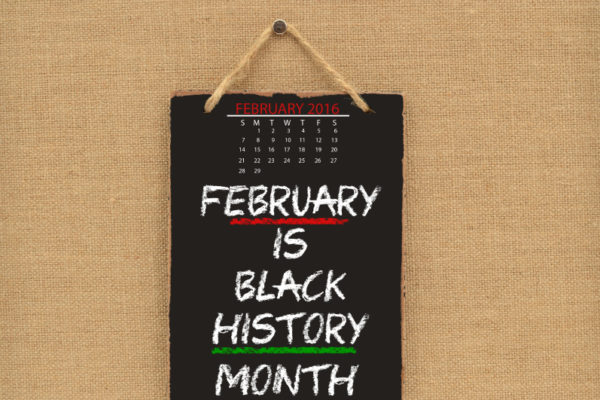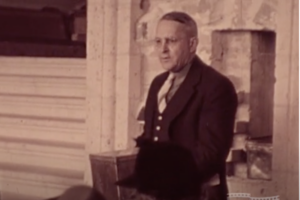Google’s “The Most Searched: A Celebration of Black History Makers” is an exciting array of images portraying Black excellence. As an educator and parent, I am thrilled that Google celebrates the accomplishments of prominent Black Americans, and I imagine millions will have an opportunity to take in the breathtaking artistry, poetry, and intellect that represents the Black American experience.
As I watched, however, I could not help but notice that the pride I felt tinged with another, less positive emotion. For virtually all of the icons in the one minute thirty-one second clip, I also could recount examples of how these heroes were pressured into silence—to not use their wisdom, prominence, and sense of justice—and not apply systemic critiques of American society and advocate for equality.
Like the dubious advice once offered to Lebron James, prominent African Americans should “shut up and play ball.” I suspect many Black Americans will know the feeling—our talents are appreciated until we apply those same skills towards advocating for social change.
I often remind people around the Martin Luther King, Jr. holiday that the Dr. King we remember is a revision of how he was viewed at the time of his assassination. While we reflect on the image of thousands of peaceful protesters on the National Mall, we overlook the fact that King was under constant threat of violence and FBI surveillance. His disapproval rating was in the high 60s—primarily because his message included stronger demands for racial and economic justice, and openly opposed poverty and the Vietnam War.
Maya Angelou received savage criticism for her political beliefs, and of course both Williams sisters have regularly been condemned and policed for their appearance and their viewpoints—while White tennis players are rarely called out in such a manner. Tommie Smith and John Carlos, the iconic Olympians who raised their fists in 1968, were ostracized from the U.S. sporting establishment. These images are triumphant, courageous, but came at considerable cost. In the cases of Dr. King and Malcolm X, it cost them their lives.
In July 2015, Ebony Magazine ran an issue with a provocative cover. It read, “America Loves Black People,” with the word “People” crossed out and “Culture” in its place. Editor Kierna Mayo wrote of the “reminders that America truly loves what it perceives as Black—from baby oil to butts, collard greens to crunk—but actual Black people? Perhaps not so much.” If the most preeminent and barrier breaking Black Americans are scrutinized, savaged, and silenced when they speak truth to power—how does this manifest in the lives of ordinary, everyday Black people?
I’m reminded of the policing of young Black children, for the length and style of their natural hair—at the same time journalist and author of the 1619 Project Nikole Hannah-Jones tells us that the “avant-garde nature of black hairstyles and fashion displays a vibrant reflection of enslaved people’s determination to feel fully human through self-expression,” and we learn that these young people are excellent, engaged students; their ancestor’s wildest dreams. Or how many Black people in professional settings walk on eggshells in their workplaces, fearful that if they call out microaggressive climates, they’ll be ascribed as the “angry Black person.” I reflect on the daily interactions that Black people have with law enforcement and the judicial system, where unwarranted traffic stops can escalate to imprisonment and death.
Some reading this are marshaling counterarguments. They will likely accuse me of “playing the race card” via these observations. I ask those readers to consider the words of legal scholar Michelle Alexander: “Our understanding of racism is therefore shaped by the most extreme expressions of individual bigotry, not by the way in which it functions naturally, almost invisibly (and sometimes with genuinely benign intent), when it is embedded in the structure of a social system.” The national, as well as law enforcement, policing of Black people’s behavior, when White people are excused for similar actions, is an example of the embedded discrimination of whic Alexander speaks.
Those who demonstrate Black excellence often see their accomplishments diminished when they should be celebrated, such as when a Italian gymnast suggested that Simone Biles’ world championship was awarded because of her skin color.
Black History Month is a moment for celebration, and Google’s impressive campaign should spur national discussion and global admiration. But it should also stir personal reflection. As Hannah-Jones remarks, “mainstream society has coveted our style, our slang and our song, seeking to appropriate the one truly American culture as its own.” I would add that another feature of this coveting is erasure. I can’t look at the picture of Prince without recalling his iconic guitar solo for George Harrison’s “While My Guitar Gently Weeps” at their induction into the Rock and Roll Hall of Fame in 2004, where he seemingly responded to a snub from not being named to Rolling Stone’s list of top 100 guitar players by eclipsing the rock legends on stage, clearly reminding the writers of his deserved place.
We should applaud and praise the iconic moments and achievements of the Google’s #TheMostSearched —but as these talents entertained, enlightened, educated, and inspired us, we must embrace their complex fullness and revere their observations of how America remains a work in progress. They are the unflinching mirror to America’s visage, and we as a nation will not fulfill our greatest potential until we can look at all aspects of our history.
Ninety four years after historian Carter G. Woodson declared Negro History Week, it is worthwhile to consider his own reflection on Black history: “”We should emphasize not Negro History, but the Negro in history. What we need is not a history of selected races or nations, but the history of the world void of national bias, race hate, and religious prejudice.” We will reach that world only when we respect Black critique as a vital and necessary aspect of Black excellence.
Richard J. Reddick is associate dean for equity, community engagement, and outreach for the College of Education at The University of Texas at Austin, where he also holds courtesy appointments in the Department of African and African Diaspora Studies, the Institute for Urban Policy Research and Analysis, and the Warfield Center for African and African American Studies.
A version of this op-ed appeared in CNN Opinion.




